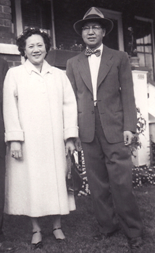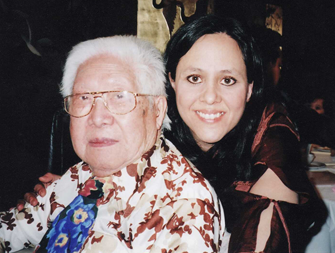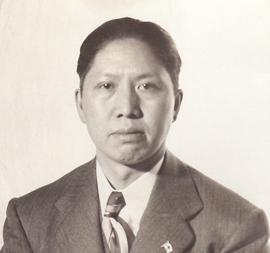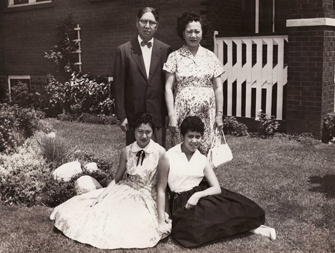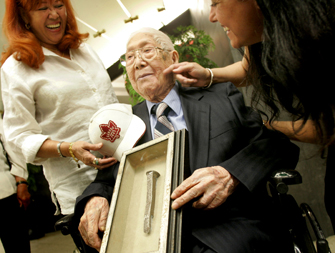"I am so proud that my ancestors and my grandfather in particular ... made a conscious decision to choose Canada ..."
Landy Ing-Anderson
Landy Ing-Anderson's maternal grandfather rode the rails into history in June, 2006, when he boarded the "Redress Express" train in Toronto bound for Ottawa to hear Canada's Prime Minister deliver an official apology for more than 60 years of legislated racism against Chinese.
Ralph Lung Kee Lee, who worked for the Canadian Pacific Railway in Fort William, Ontario, now Thunder Bay, was the oldest surviving head tax payer at 106 years old to attend the apology and ceremony on June 22, 2006, in the House of Commons.
Mr. Lee started working as a 12-year-old boy, shortly after arriving in Canada in 1912, washing dishes to pay his $500 head tax debt that had been paid by others from his village in Toishan County. He washed dishes for five years, until he was hired by the CPR. "The railroad was already built at that point, but his contribution was to the maintenance and the expansion of the railroad and his job was to cut the railroad ties," says Landy.
next page >Her grandfather carried the emotional scars of his lost youth and family separation, caused by the Exclusion Act, through his entire life. "Really, it was an open wound for our family," she says. But Landy also says Prime Minister Stephen Harper's apology to Chinese Canadians for the head tax and Exclusion Act, which lasted from 1885 to 1947, changed her family's life in Canada.
"Even though we were celebrating the apology ... I couldn't help but be saddened for all of the families that were unable to celebrate the way we were, that were unable to heal ... it was a closure to a very ugly part of our family history."
< previous page






















